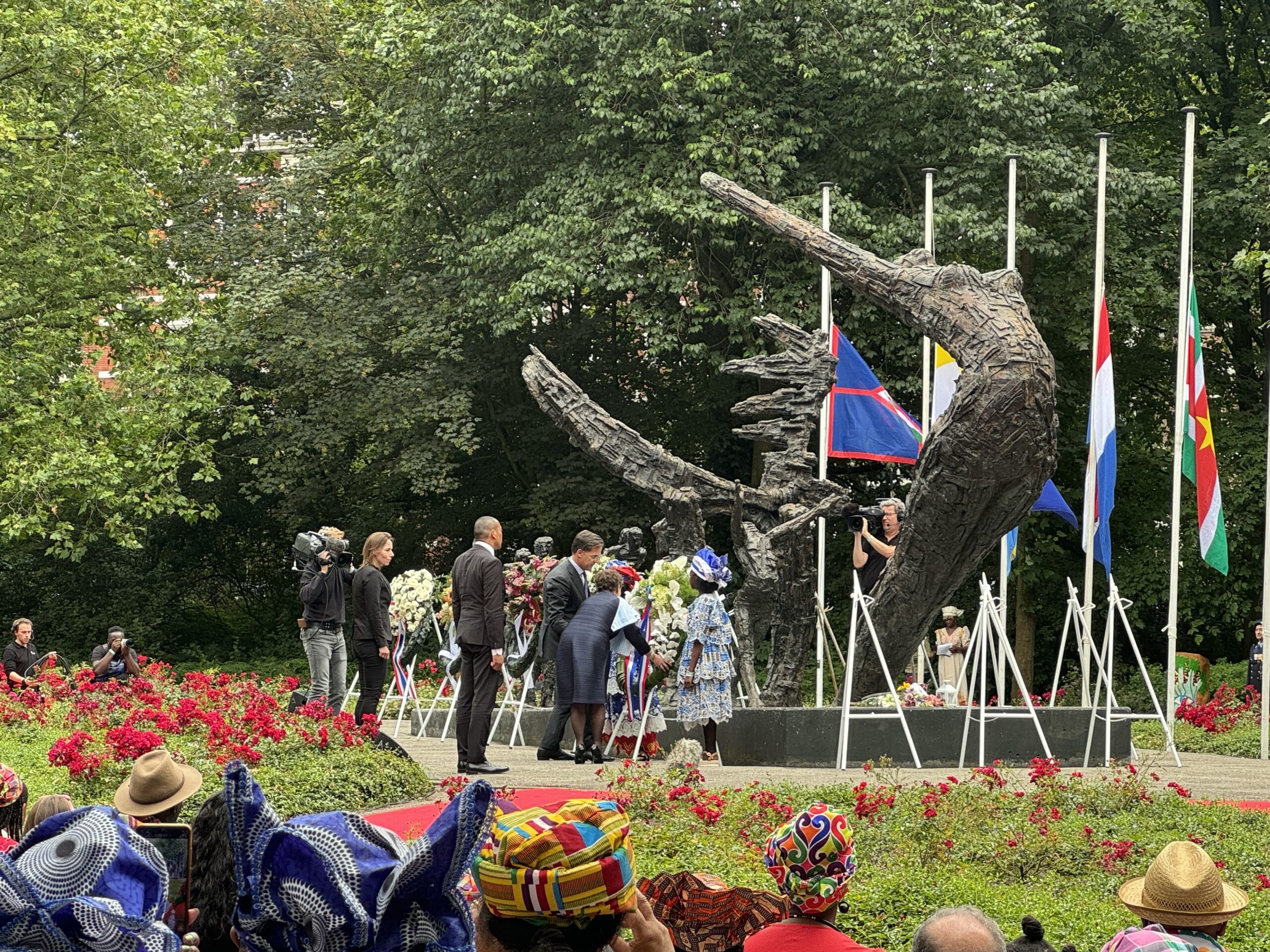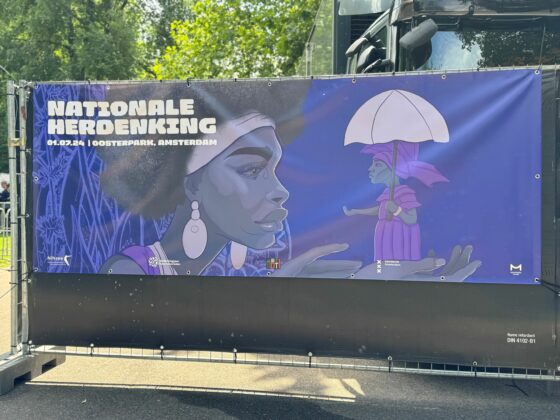Breaking the chains: Keti Koti remembrance on eve of new cabinet
Senay Boztas
Apologies cannot be unmade – but they can be the start of an honest future. That was the message at the emancipation day festival in Amsterdam known as Keti Koti, when the Netherlands remembers “breaking the chains” of slavery.
The festival had sparked controversy before it even started. An invitation to the parliamentary speaker, PVV politician Martin Bosma, was rescinded because he refused to retract derogatory statements about slavery and anti-slavery freedom fighter Tula.
But at the 22nd edition of the event in Amsterdam’s Oosterpark, outgoing members of Mark Rutte’s government, campaigners and Amsterdam mayor Femke Halsema said the Netherlands should not go backwards.
Linda Nooitmeer, chair of national slavery institute NiNsee, marked the end of a year of remembrance following a heartfelt apology from the Dutch king Willem-Alexander. “Nobody can go back to the broken silence around this history again,” she said.
“The run-up to this July 1 remembrance was, to put it mildly, uneasy and uncomfortable. For the first time in 22 years, the parliament is not formally represented, and that is very regrettable.
“But we all need each other, citizens and officers of state: at a time when it is much easier and more tempting to stand against one another, we need the courage to see the other. Not just their opinion, political colour, cultural background, gender, religion, physical abilities, but the fellow human being.”
Rutte laid a wreath in remembrance, alongside outgoing minister for legal protection Franc Weerwind, junior minister for commonwealth relations Alexander van Huffelen and foreign affairs minister Hanke Bruins Slot. The only representatives of the new right-wing coalition, which officially takes office on Tuesday, were the VVD’s Dilan Yeşilgöz and NSC party leader Pieter Omtzigt, a campaigner for justice and good governance.
But the event was overshadowed by fears of what will come, in a government led by far-right Geert Wilders’ PVV. His manifesto called to “take back” apologies for almost three centuries of profiting from enslaving 600,000 Africans, and an unknown number of Asian and indigenous Caribbean peoples. Last year marked the 160th anniversary of the day slavery was officially banned by the Dutch, and 150 years since forced labour in the colonies stopped.
Emotional scars
In a speech, Amsterdam mayor Halsema, talked of physical and emotional scars carried through generations and the recent social progress that has been made in recognising this past. “To the people who want to turn back our progress, who are proud of looking away and denying the pain of other people, I’d like to ask: why?” she said.
“Surely nothing is being taken away from you. Think about what we can achieve if… we are curious about each other instead of narrow-mindedly judging …. Then we have something we can be proud of.”

Disrespect
Surinamese-Dutch actress and singer Gerda LentenHavertong told Dutch News that the history is deeply relevant. “I think it’s important to reflect that none of us alive now would have wanted this: not you, not the Netherlands, not me,” she said.
“But it is important that Dutch people know that this is part of our history, and you cannot turn away from it: it is your duty to tell it to the next generation.”
Rutger Groot Wassink, Amsterdam’s deputy mayor, who last week warned that “winter is coming” with the new government, said wealthy cities such as Amsterdam had a deep connection with a history of oppression and slavery.
“Everyone in the Netherlands needs to look this in the eye, because more understanding of historical context will help us move forward,” he said.
Weerwind told Dutch News on his last day as minister that Keti Koti has even more weight this year. “Today, it is even more important to increase awareness of this history,” he said. “If we look at black communities in the Netherlands, you still see social and economic differences.
“The head of our state, the king, has made a clear apology, and … I cannot imagine that anyone would disrespect our head of state [by trying to take it back]. This is a part of our history, something that needs to be processed, to be discussed, to throw open the window to a shared future.”
Thank you for donating to DutchNews.nl.
We could not provide the Dutch News service, and keep it free of charge, without the generous support of our readers. Your donations allow us to report on issues you tell us matter, and provide you with a summary of the most important Dutch news each day.
Make a donation